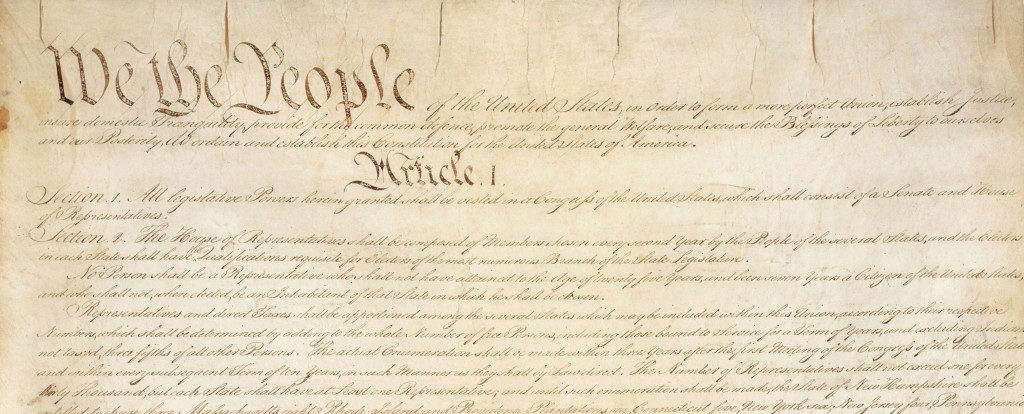On March 9-10 The American Anglican Council will be participating with other orthodox, Bible-believing Christians from other historic mainline denominations at the meeting of The Common Ground Christian Network in Washington DC. You may not be aware that it was the AAC that helped pull this group together back in October 2012. The Common Ground Christian Network is a group of denominations, organizations, congregations, and individuals who believe that 21st century Christians need to stand together for the cause of Christ. We come from different denominational and theological traditions, but these distinctives are respected and appreciated, not a cause for division among us. The common ground upon which we stand is the affirmation of classical orthodox Christianity. You can find the full charter of this coalition, “Jesus Christ: Our common ground and common cause,” as well as the list of participating denominations, organizations, congregations and individuals, here.
Why is the American Anglican Council expanding our mission field beyond the Anglican world? Why are we making “Common ground and common cause” with like-minded Christians in other denominations? Very simply, because we need to stand together in order to engage an increasingly hostile North American culture with the Gospel of Jesus Christ. In particular, we need to stand up for Religious freedom together so that we can proclaim Jesus Christ and, together, reach North America with the transforming Love of Jesus Christ.
And by the way, this is not a “top down” organizational ecumenism. This is a “bottom-up” grass roots movement of faithful Christ-followers who are working together on theology and discipleship, engaging our culture with the Gospel, social justice, church planting and missions, —because we are all facing the same challenges, and often from increasingly hostile denominational leaders and their theology. Many of us have left to form new denominations like the Anglican Church in North America, the North American Lutheran Church, the PCA, EPC and now the Covenant Order of Presbyterians. Others have stayed to witness and work for mainline denominational renewal. But the American Anglican Council continues to play a leading role in helping the CGCN because we are all committed to fulfilling Christ’s Great Commission (Matt. 28:16-20) to make disciples of Jesus in North America—and to stand up for the religious freedoms that are essential to do so.
And Religious Freedom is the very topic of our upcoming gathering in Washington DC. Our speakers will include former Rep, Frank Wolf (R-VA), Virginia’s longest serving representative in Congress and champion for human rights and persecuted Christians all over the world. We will also hear from Stanley C. Thies at the Center for Public Justice on high level threats to religious freedom, from Scott Ward, Esq. of Gammon & Grange on practical ways churches and ministries can meet those challenges, and from Travis Weber, Director of the Center for Religious Liberty at the Family Research Council. We will spend time together planning practical action steps we can take together to secure the religious freedoms we all need to fulfill Christ’s Great Commission.
I remember a question our own Robert Lundy, AAC Director of Communications, posed to Eric Metaxas at our ACNA Provincial Assembly last June in Latrobe PA. The gist of his question was this: How do we respond to people who say that the challenges to our own religious freedom here in North America are nothing compared to the challenges and outright persecution Christians face elsewhere in the world—and especially in places like the Middle East, Nigeria, Pakistan and North Korea. Eric Metaxas replied that it is essential we stand up for and defend the religious freedoms we enjoy by right, here in America, so that we may witness to them, share them, and promote them in countries where Christians and other people of faith are less fortunate.
Later on this year, the American Anglican Council will be featured speakers at the 2015 Georgia Anglican/Episcopal Men’s Conference at St. Luke’s Church in Blue Ridge GA. The topic of the Conference will be “When Christ and Culture Collide: Confronting Secularism with the Gospel.” I will be speaking on how Daniel gives us a biblical model of how to live faithfully, and engage creatively, within a non-Christian culture. One of our AAC Board members, attorney Rich Baker (Mauck & Baker, Chicago) will be speaking on how the church must prepare for increasing challenges to our religious freedoms, and specifically how we can use the judicial processes we have to defend our constitutional freedoms of religion, speech and association. (For more details of the conference, please email Robert Lundy at rlundy@americananglican.org.)
But our commitment to informing Anglicans of the challenges and defending our religious freedoms doesn’t stop there. Sunday night I’ll be flying down to St. Augustine FL to chair the Governance Task Force (GTF) of the Anglican Church in North America (ACNA). The GTF is working group that drafted the Constitution and Canons of the ACNA. The GTF is the working group that continues to develop the canons (the law of the Church) to meet new challenges and issues that face our Church. The GTF also focuses on the interface of canon (church) law with civil and criminal law. We will be looking at how our ACNA “laws” need to meet the challenges of the laws of the state with regards to the redefinition of marriage, the redefinition of employment discrimination and more.
How will we stand for religious freedom in the face of these challenges—in faithful, biblical and Godly ways? What can we learn from other Anglicans facing these same challenges? Please keep us in your prayers as we meet Monday February 23-Tuesday February 24. May we be faithful to the words of St. Paul in Colossians 3:23: “Whatever you do, work at it with all your heart, as working for the LORD, not for men.”
The Rev. Canon Phil Ashey is Chief Executive Officer of the American Anglican Council.


